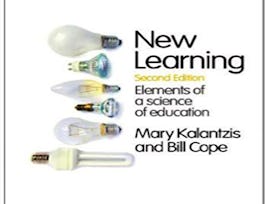Through a series of engaging metaphors and stories, prospective and current EFL/ESL teachers will identify, summarize, and evaluate 7 basic language learning paradigms. Learners will be presented information on such foundational principles as motivation, risk taking, two different modes of learning, and balancing the teacher profession. Learners are also given an understanding of basic techniques founded on those principles, such as teacher talk, looking “ridiculous” in order to lower the affective filter, and networking. With these foundational principles in mind, ESL/EFL teachers will scrutinize common assumptions about language learning by comparing how they stack up to research-based core principles.



Teach English Now! Foundational Principles
This course is part of multiple programs.



Instructors: Emilia Gracia
Top Instructor
Sponsored by IEM UEM Group
245,616 already enrolled
(15,226 reviews)
What you'll learn
Understand ways to motivate and properly engage students
Maintain control of a classroom and avoid teacher burnout
Describe the distinction between learning and acquisition
Use technology to your advantage in the classroom
Skills you'll gain
- Teaching
- Interactive Learning
- Learning Styles
- Instructional and Curriculum Design
- Language Learning
- Learning Strategies
- Instructional Design
- Lecturing
- Student Engagement
- Classroom Management
- Instructing
- Education and Training
- Instructional Strategies
- Course Development
- Learning Theory
- Educational Materials
- Pedagogy
Details to know

Add to your LinkedIn profile
17 assignments
See how employees at top companies are mastering in-demand skills

Build your subject-matter expertise
- Learn new concepts from industry experts
- Gain a foundational understanding of a subject or tool
- Develop job-relevant skills with hands-on projects
- Earn a shareable career certificate


Earn a career certificate
Add this credential to your LinkedIn profile, resume, or CV
Share it on social media and in your performance review

There are 6 modules in this course
This course introduces learners to the role of a teacher in helping to motivate and properly engage learners. It begins with a metaphor: language is cake, meaning that language must be presented well in order to be enjoyed (we will actually perform a skit to show this meaning clearly). This module will demonstrate how a teacher can encourage a student and increase motivation by paying attention to techniques such as improving teacher talk, scaffolding language, and the use of body language to make meaning clear. All of these skills, while gained over the course of a lifetime as a language teacher, must be considered primary goals from the very beginning. And all of these skills help a teacher recognize that presentation skills make a difference to learners not only in motivating them, but in allowing them to understand the concepts presented.
What's included
8 videos4 readings4 assignments2 peer reviews
In this module, learners are introduced to the distinction between learning and acquisition. The distinction is made to help give learners context for the principle that language requires practice. To introduce the importance of practice, the distinction between a focused and diffuse mode of learning demonstrates that students who simply learn through memorizing vocabulary and grammar structures (i.e., focused mode) often don’t acquire language structures. On the other hand, teachers who engage students in both a focused and diffuse mode, like a basketball coach with his players, are able to instruct but give time for that instruction to “sink in” through dedicated practice.
What's included
5 videos2 readings3 assignments1 peer review
Using language-learning expert Francois Gouin’s experience of going to Germany and failing to learn German, this module demonstrates the need for learners to understand how a language is learned. Gouin’s experience demonstrates not only the need for a diffuse mode of learning wherein practice is valued, but it also demonstrates the psyche of many second language learners. Francois, in some sense, was too smart for his own good, relying on techniques for learning material that don’t apply to language use and application. Students must use techniques and strategies that are proven to help someone acquire language, like those from the good language learner studies. Teachers can facilitate student learning by helping to demonstrate good language learner principles.
What's included
5 videos6 readings3 assignments1 peer review
While it was once considered impossible to be immersed in English outside of an English-speaking country, with the advent of the internet, the world has changed and continues to change significantly. This module presents ways in which to use the internet and other resources to a teacher’s advantage, and helps a teacher recognize their ability to engage students on cell phones, tablets, and computers. Introduction of the flipped classroom, meaning that learners can engage in focused material (videos, readings, etc) outside the classroom, and then engage in projects, exercises, and discussions within it.
What's included
5 videos2 readings3 assignments1 peer review
This module introduces the concept of teacher burnout, and several techniques to avoid it. The first technique is the creation of a network. By creating a network of teachers to help you understand your field, you can learn new ideas and have a resource for solving difficult problems. The second technique, maintaining control of your teaching environment, demonstrates the need for teachers to understand how to best make a difference and avoid the pitfalls of complaining. Finally, the third technique, finding your core, explains that teachers can paradoxically maintain energy by working tirelessly for the principles they most believe in.
What's included
6 videos3 assignments1 peer review
This review of the course guides learners to understand the different metaphors that serve as guides to understanding the foundational principles presented in this course.
What's included
1 video1 reading1 assignment
Instructors



Offered by
Why people choose Coursera for their career




Learner reviews
15,226 reviews
- 5 stars
93.76%
- 4 stars
5.05%
- 3 stars
0.57%
- 2 stars
0.18%
- 1 star
0.42%
Showing 3 of 15226
Reviewed on Sep 9, 2021
That was a great experience and im very grateful for all the information I have been taught. The professors leading this course are just so professional and it was really joyful to learn all the time.
Reviewed on Dec 28, 2020
This one of the best courses I've ever had here in Coursera. I really learned a lot and enjoy my learning career. The topics were well explained and the ideas presented in an interconnected manner.
Reviewed on Nov 29, 2019
A great course! It is a well planned and goes light taking into consideration that the learners work as teachers. I have become a great fan of Dr. Dixon and hope to learn more in the modules to come.
Recommended if you're interested in Social Sciences

University of California, Irvine

Tsinghua University

Sungkyunkwan University

University of Illinois Urbana-Champaign

Open new doors with Coursera Plus
Unlimited access to 10,000+ world-class courses, hands-on projects, and job-ready certificate programs - all included in your subscription
Advance your career with an online degree
Earn a degree from world-class universities - 100% online
Join over 3,400 global companies that choose Coursera for Business
Upskill your employees to excel in the digital economy




